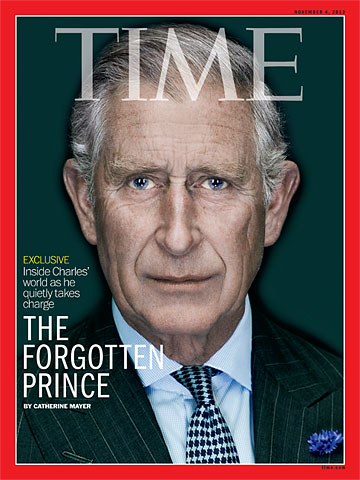
(7 of 8)
The duchess does struggle. She shares with the Prince a sense of the ridiculous that sometimes makes her lose composure. This summer, during a display of clog dancing at Llwynywermod, their home in Wales, she laughed until her mascara ran. He laughed with her. Their affection is palpable.
Talk to Britons and you rarely find residual anger toward Camilla. Opposition to her may always have been overstated. Palace sources claim journalists manufactured an oft-cited 1993 incident in which Camilla was supposedly pelted with rolls, hiring a look-alike and roll throwers to stage the scene. After revelations about Britain's press culture in the wake of the hacking scandal at Murdoch's News of the World, tales of tabloid skulduggery sound less far-fetched. Charles' sons and members of their household were the first proven victims of hacking.
The Prince's advisers concluded years ago that there was little point in seeking to correct any but the most damaging calumnies. So when in 2012 his website posted a statement denying that seven boiled eggs of different levels of runniness are lined up for the princely breakfast, you knew the eggs were significant. The anecdote comes from On Royalty, a book by the distinguished BBC journalist Jeremy Paxman, who makes it clear that this is an unverified story. Subsequent reports scrambled the context, presenting the eggs as an example of Charles' profligate ways.
Petty, yes? Yet such misperceptions matter because Britons, more than Americans, have an innate suspicion of wealthy do-gooders. There's a cultural predisposition to think you have to walk in people's shoes before you can understand their experience. Someone whose valet applies toothpaste to brush every morning--another myth--cannot hope to connect with the real world.
The Prince is seriously rich, though he's nowhere near as rich as his Bond villains and can be royally frugal. Indeed, he keeps his palatial residences frigidly underheated, saves his bathwater for the garden and wears garments so mended, they are more patch than original. He does not own the Duchy of Cornwall but derives from the estate all but a small slice of his total annual income, which amounted to £20 million (about $32 million) in the last U.K. financial year and helps fund official duties carried out by him, his wife, his sons and his daughter-in-law. (Just under £1 million, $1.4 million, came through the taxpayer-funded sovereign grant.) He pays the top tax rate, but the duchy, which operates as a commercial entity, is exempt from corporation tax because it is not defined as a company. The Prince is not allowed to pocket capital gains from assets disposed of by the duchy, so he does not pay capital-gains tax. In July, British parliamentarians summoned members of the Prince's staff to answer charges that this might be seen as tax avoidance.
His principal private secretary, William Nye, explained that if the duchy paid corporation tax and the Prince's income tax were adjusted accordingly, the tax take for the Treasury would be pretty much the same. "I do not genuinely believe there is overall an unfairness," said Nye.
